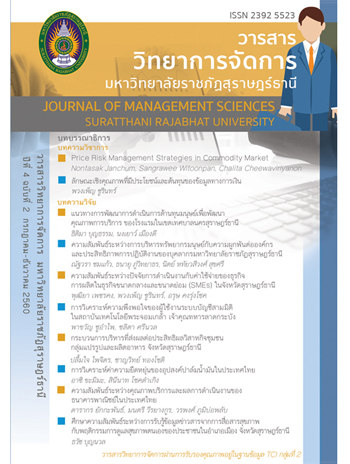User Satisfaction Analysis of the Three-Accrual Basis Accounting Dimensions Software Program at Thailand’s King Mongkut’s Institute of Technology Ladkrabang
Main Article Content
Abstract
The study compared user satisfaction, program performance, and user perception regarding three-accrual basis accounting dimensions as used by the Thai university King Mongkut’s Institute of Technology Ladkrabang, and were classified following program performance perception. 97 individuals were selected for interview by use of purposive sampling method. Data was collected using a questionnaire which consisted of three parts: personal information,program performance perception, and user satisfaction. Data were collected during January to September 2015. Data were analyzed using descriptive statistics: frequency, percentage, mean, and standard deviation, and One-way analysis of variance (ANOVA). Hypotheses testing results showed that system efficiency and usefulness, system design and system support affect user satisfaction significance at the 0.01 level. Moreover, overall user satisfaction was average. Perception of system efficiency and usefulness had the highest mean rating score (3.18) following by system design (3.04), and system support considered the least perceived factor (2.96). Therefore, accounting units which utilize the three-dimensional accrual basis ofaccountingprogram should focus on system support first in order to create end-user satisfaction.


